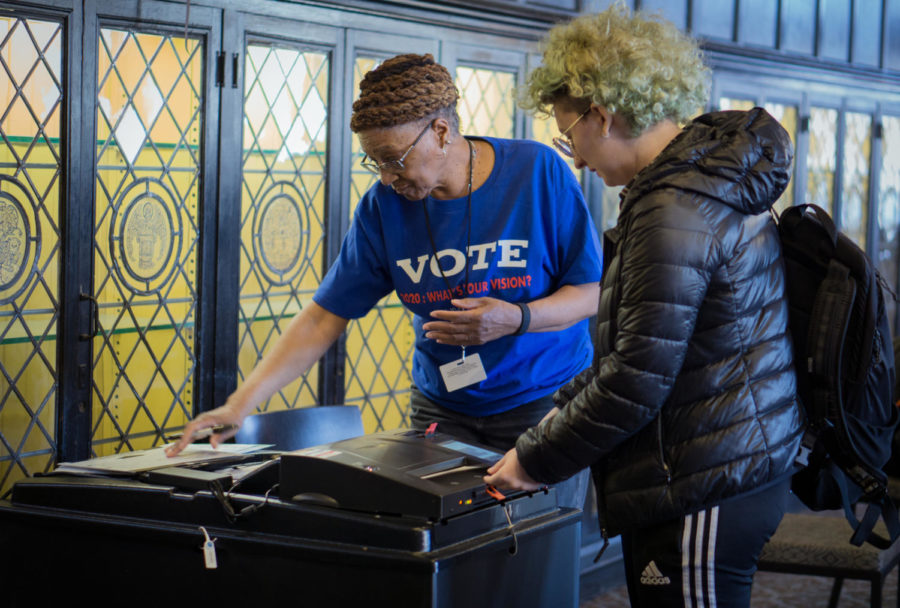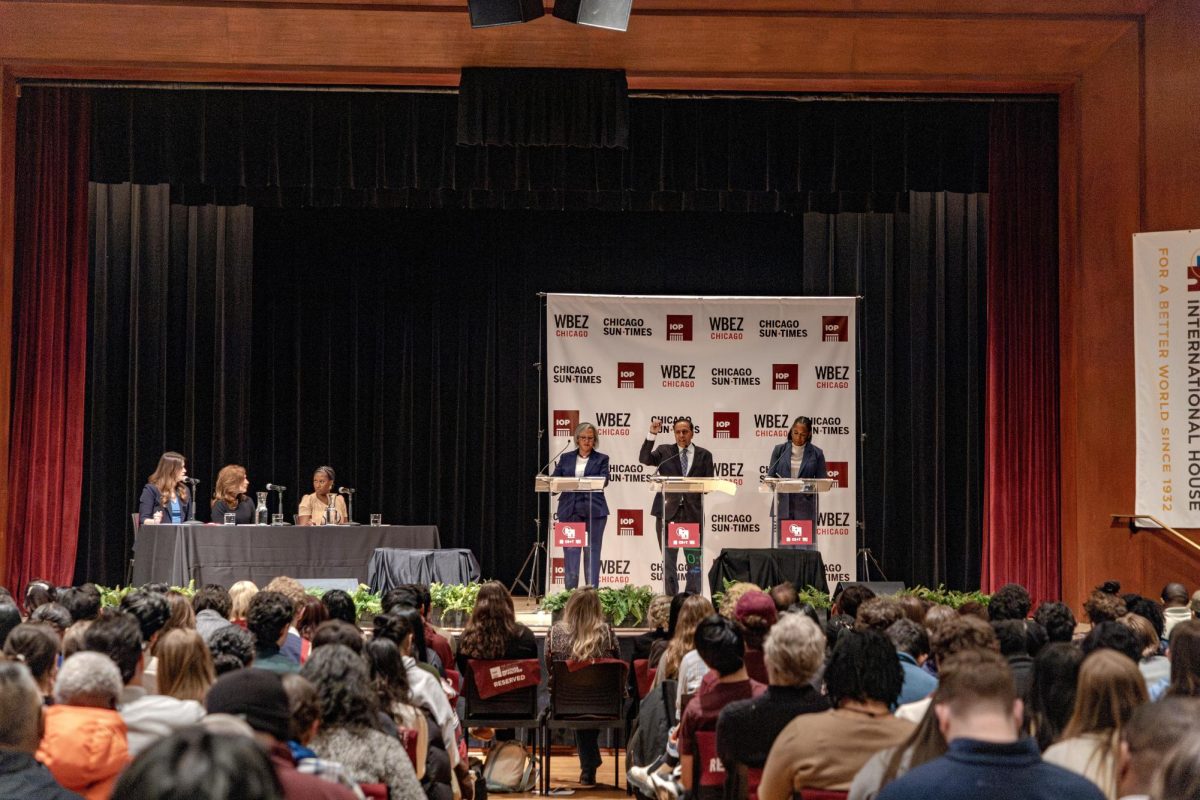On March 19, Illinois voters will have the chance to select their judges. As opposed to an appointment process, Illinois judges are chosen by voters in partisan elections. Here’s what you need to know before the election.
How are Illinois’s Courts Organized?
Cook County’s circuit court is the most local level at which Hyde Park residents can vote on judges. There are approximately 400 circuit court judges in total. A third of judges are countywide—elected by all Cook County voters—and each of the rest belongs to one of Cook County’s 20 subcircuits. Hyde Park belongs to the first subcircuit, which currently has 32 circuit judges.
The court above the Cook County circuit court is the Illinois appellate court, which hears cases appealed from the circuit court. The appellate court comprises 54 judges who serve 10-year terms across five municipal districts. Cook County is the first municipal district and has 24 appellate court justices.
Decisions of the appellate court can be appealed at the Illinois Supreme Court, the state’s highest court. It has seven justices serving 10-year terms. For electing these justices, Illinois is separated into five judicial districts. Voters in Cook County, who constitute the First District, elect three justices, while the other four districts each elect one justice.
How do I decide who to vote for?
One tool in deciding which judicial candidates to vote for is the archive of candidate evaluations done by bar associations, which are professional associations for lawyers. Judicial candidates can choose to participate in the evaluation process, often by answering questionnaires and providing written or interview responses to questions. The bar associations will review each candidate’s answers and professional history to decide whether to recommend voting for that candidate. VoteForJudges, a nonpartisan judicial voter education website, compiled 14 bar associations’ ratings of all the judicial candidates that Cook County voters can vote on this cycle.
Injustice Watch, a Chicago-based nonpartisan and nonprofit journalism organization focusing on the court system, also created a list of candidates. The list notes past controversies, positive and negative bar association ratings, official party endorsement, and judicial roles held for each candidate.
Who’s running?
In the circuit court, there are no elections this cycle specific to the first subcircuit. However, Hyde Park residents can still decide on 11 countywide circuit court elections. There are 15 candidates running for these seats, meaning there are seven uncontested races with only one candidate running, along with four contested races with two candidates running in each.
Running to fill the vacancy left by Judge James P. Flannery’s death are candidates Pablo F. deCastro and Chelsey Rence Robinson. DeCastro, a member of the University of Chicago College class of 1991 and former workshop instructor at the UChicago Law School, served as a trial attorney for 28 years. He is endorsed by the Democratic Party. Robinson, who has been a criminal and civil litigator for 27 years, is a founding partner of law firm Owens & Robinson. She emphasizes bringing justice for disadvantaged groups.
Incumbent Judge Neil Cohen, appointed to fill Judge Raymond Mitchell’s seat in 2022 after Mitchell left for another position, is running against challenger Wende Williams. Cohen previously worked at the Cook County State’s Attorney’s Office and spent 20 years as a private practitioner. Williams, who declined to take part in the bar associations’ evaluation process and so received “not recommended” ratings from all of them, has been an attorney in public and private practice since 1990.
Appointed incumbent Edward Underhill and challenger Lori Ann Roper are running to fill the vacancy left by former judge Timothy Murphy. Underhill, who has the Democratic Party’s endorsement, worked as Dekalb county State’s Attorney then in private practice for 40 years before he was appointed. Roper has worked for 29 years in the Law Office of the Cook County Public Defender, where she is now an attorney supervisor.
In the last contested circuit court race, Russ Hartigan is challenging incumbent Debjani Desai. Desai previously worked as general counsel in the Illinois Office of the Comptroller, which manages the state’s finances. Hartigan served as a circuit court judge from 2010 to 2016.
In addition to the circuit court elections, the appellate court has four elections that Chicagoans will decide this cycle. Two of the elections are contested.
Incumbent Cynthia Cobbs, who was appointed to her current seat, is running against Carolyn Gallagher. Before Cobbs’s appointment to the appellate court, she served as circuit court judge. She was the first woman and Black person to serve as director of the Administrative Office of the Illinois Courts. Gallagher is currently a circuit court judge, elected in 2016, and litigated cases for 27 years in appellate and trial courts before becoming a circuit court judge.
Celia Louise Gamrath and Leonard Murray, running to fill the seat left vacant by former judge Mathias Delort, are current circuit court judges. Gamrath was previously an appellate judicial law clerk before becoming an appellate law partner. Murray previously served as an associate circuit court judge, and before that, he practiced at his own law firm.
Finally, there is one Supreme Court seat up for election in the First District, with two candidates running.
Incumbent Justice Joy Cunningham is facing off against challenger Justice Jesse Reyes. Cunningham previously served as an appellate and circuit judge, as well as a nurse. Reyes has been a member of the judiciary since 1997. He is currently serving as an appellate judge and previously served as a circuit judge.
Voters can find a sample ballot based on their address using Ballotpedia’s sample ballot tool.
















William Hanselman / Sep 1, 2024 at 5:59 pm
The ratings by the bar association and other groups is worthless. There needs to be a published list of convictions and the sentences they gave to these convictions. This is how we can eradicate the many, many lenient judges who let criminals back on the street with little or no consequences. These judges need to be removed.
Luis M Reyes / Sep 29, 2024 at 9:46 am
Agreed. This proposed list is long overdue.